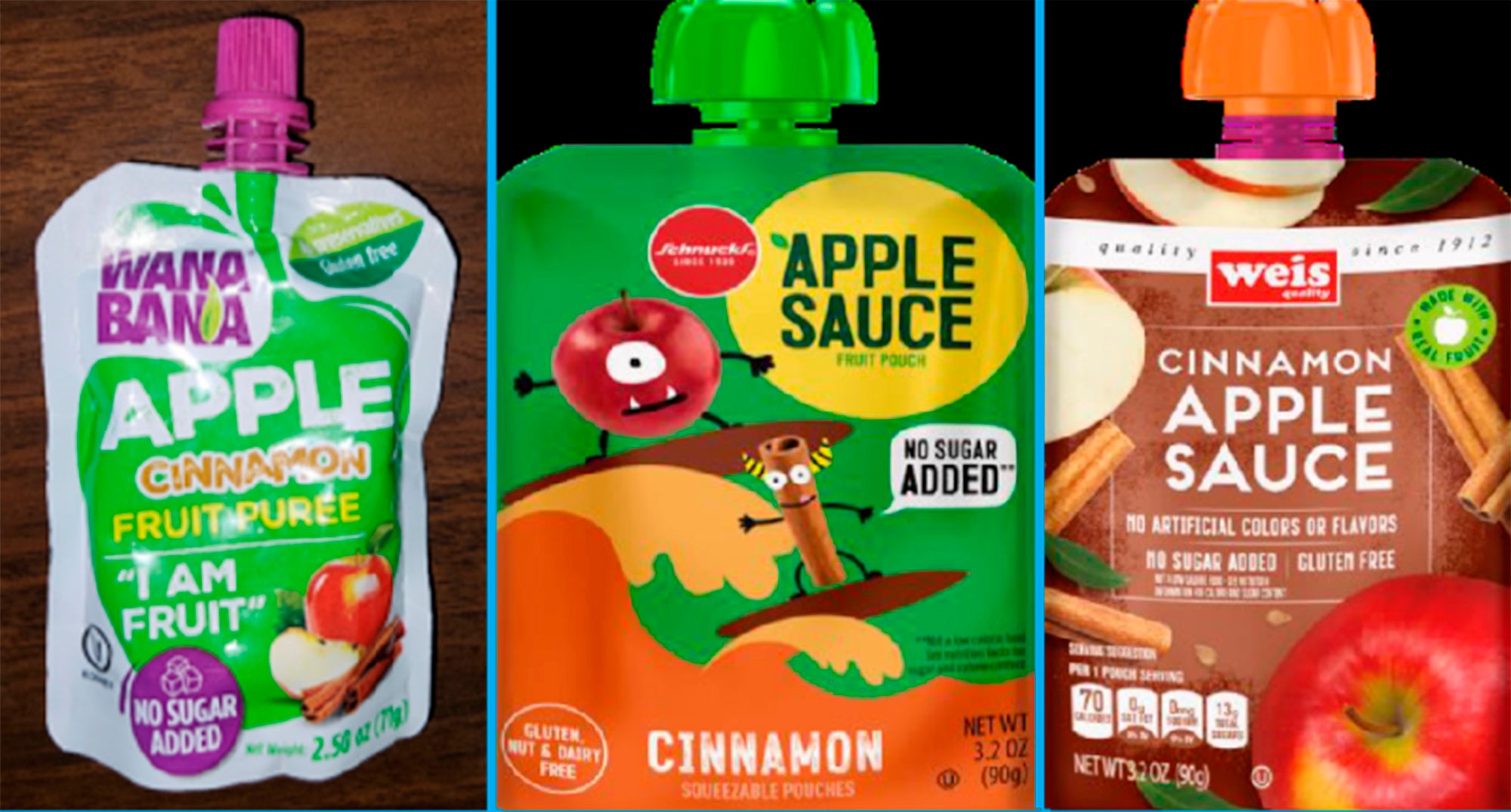The FDA is screening US cinnamon imports after more kids are sickened by lead-tainted applesauce
The U.S. Food and Drug Administration is screening imports of cinnamon from multiple countries for toxic lead

Your support helps us to tell the story
From reproductive rights to climate change to Big Tech, The Independent is on the ground when the story is developing. Whether it's investigating the financials of Elon Musk's pro-Trump PAC or producing our latest documentary, 'The A Word', which shines a light on the American women fighting for reproductive rights, we know how important it is to parse out the facts from the messaging.
At such a critical moment in US history, we need reporters on the ground. Your donation allows us to keep sending journalists to speak to both sides of the story.
The Independent is trusted by Americans across the entire political spectrum. And unlike many other quality news outlets, we choose not to lock Americans out of our reporting and analysis with paywalls. We believe quality journalism should be available to everyone, paid for by those who can afford it.
Your support makes all the difference.The U.S. Food and Drug Administration is screening imports of cinnamon from multiple countries for toxic lead contamination after growing reports of children who were sickened after eating pouches of applesauce and apple puree.
Cinnamon from a manufacturer in Ecuador is the “likely source” of high levels of lead found in recalled pouches of applesauce puree linked to illnesses in at least 34 children in 22 states, the FDA said Friday.
But the agency noted there have not been other reports of illness or elevated blood lead levels tied to the spice that's popular in holiday baking.
The agency has not yet been able to collect and directly test samples of the cinnamon in the product. Import records show that WanaBana LLC of Coral Gables, Florida, received shipments of cinnamon apple fruit puree from Austrofood, a manufacturer in Ecuador.
One pouch of recalled WanaBana apple cinnamon puree collected from a Dollar Tree store was found to have lead levels more than 200 times higher than proposed FDA guidance would allow, officials said.
The agency does not regulate specific levels of heavy metals — including lead— in spices, said Joanne Slavin, a food science professor at the University of Minnesota.
Consumers should be aware that cinnamon may contain lead, she said, but the FDA's release on Friday said there’s no indication that cinnamon products other than the applesauce puree are affected.
“I wouldn’t want to panic people and say if you put cinnamon in your pumpkin pie, you’re a bad grandma,” she said.
Illnesses linked to the pouches have been reported in children ages 1 to 3, with at least one child showing a blood lead level eight times higher than the level that raises concern, the Centers for Disease Control and Prevention said.
There’s no safe level of lead exposure, but the CDC uses a marker of 3.5 micrograms per deciliter to identify children with higher levels than most. The affected children’s blood lead levels ranged from 4 to 29 micrograms per deciliter.
The recalled fruit products include pouches of WanaBana apple cinnamon fruit puree and Schnucks and Weis brand cinnamon applesauce. They were sold at the Dollar Tree, on Amazon and in other online outlets.
Kids who may have eaten the products should be tested for lead levels, health officials said. Children who have fallen ill reported headache, nausea, vomiting, diarrhea and anemia, but often kids may show no symptoms.
Lead exposure can lead to serious learning, cognitive and behavior problems. Heavy metals like lead can get into food products from soil, air, water or industrial processes, according to the American Academy of Pediatrics.
___
The Associated Press Health and Science Department receives support from the Howard Hughes Medical Institute’s Science and Educational Media Group. The AP is solely responsible for all content.